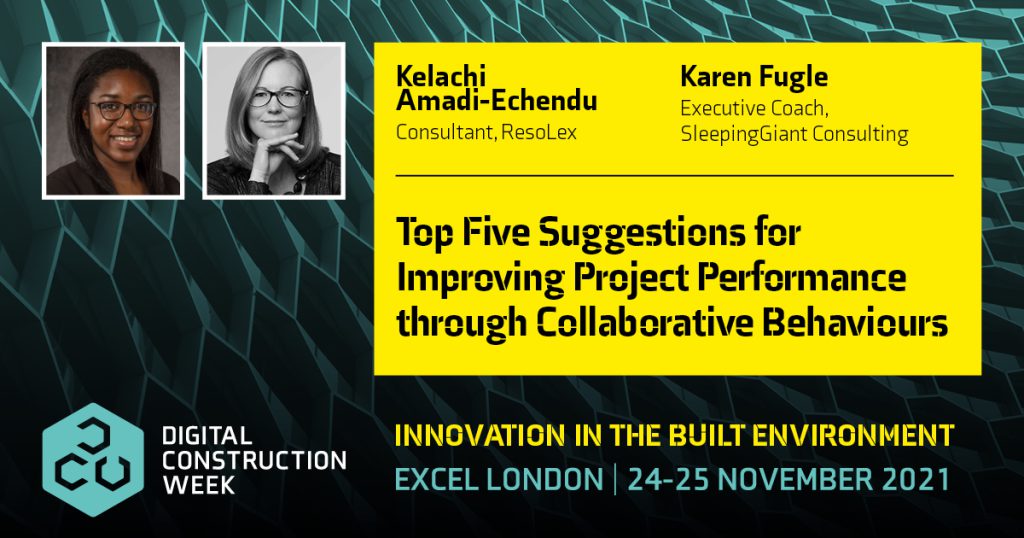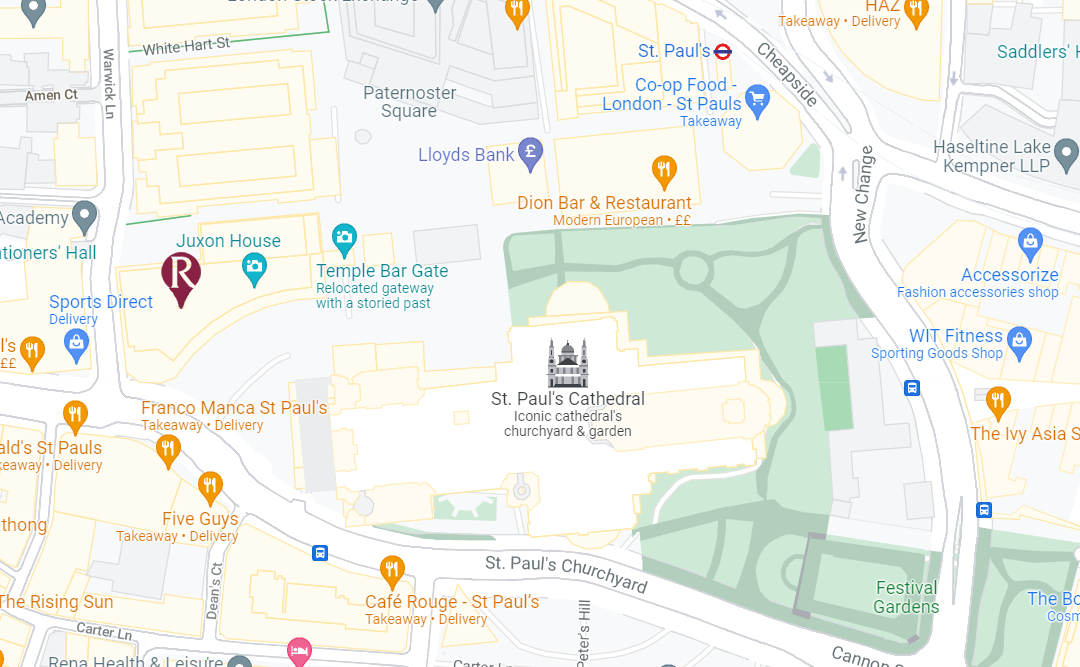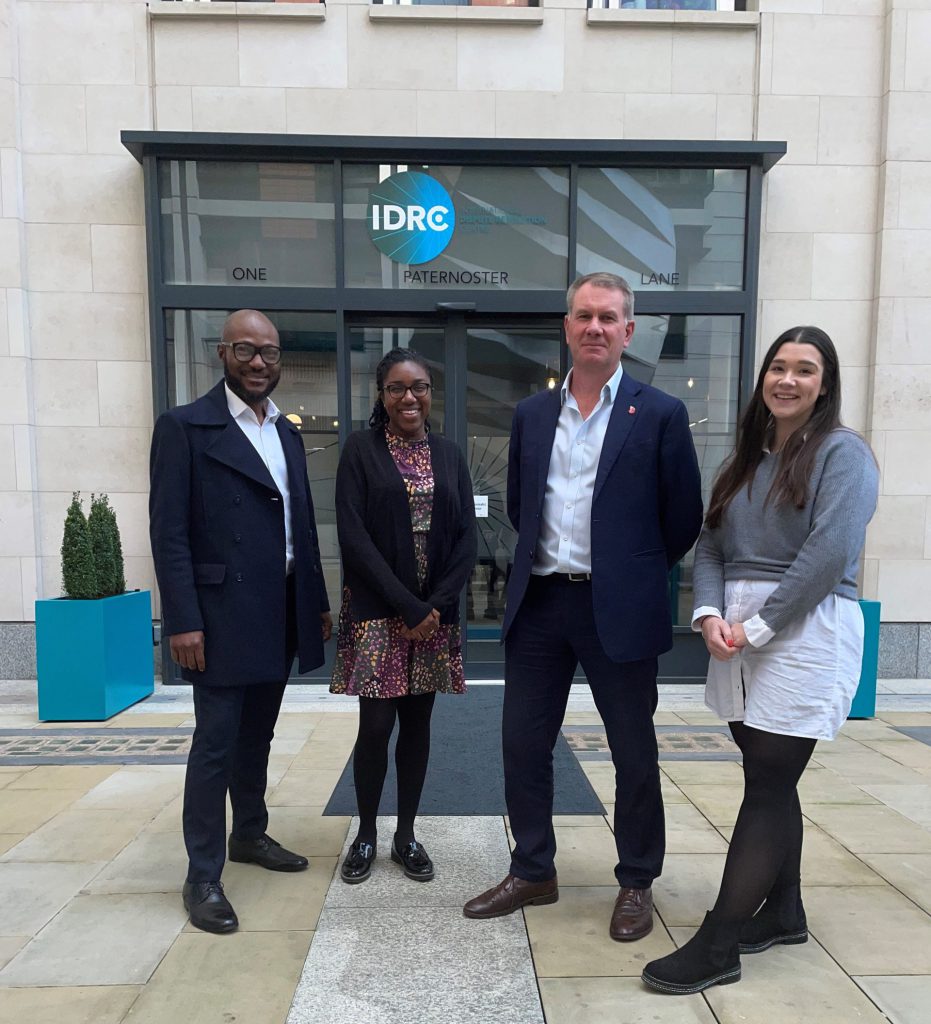
DCW 2021 round-up: Improving Project Performance through Collaborative Behaviours
It was great to be back in the room with leading construction industry professionals for Digital Construction Week 2021. Not only did we meet some great people, but we were also delighted to share our ‘Top Five Suggestions for Improving Project Performance through Collaborative Behaviours’ on the ‘People and Change Stage’.
The construction industry has come under criticism for low productivity over many years. Together with previous initiatives, the Construction Playbook speaks to some of the key challenges we need to overcome to get better, faster and greener delivery of projects. Current studies show that:
“…only 35% [of projects are] on or under budget and 32% on or ahead of schedule…” Deltex Clarity Industry Report/Riba Journey, Aug 21
‘The Construction Playbook’ requires all public bodies who commission construction projects to ‘comply’ or ’explain’ and has the intention to generate a step-change in project performance. The Playbook provides some clear approaches to what we need to do, though it doesn’t explain how to achieve behavioural change.
In our complimentary report, ‘Changing Behaviours in Construction: A complement to the Construction Playbook’, we have considered the cultural and behavioural changes needed to enable this transformation of the industry and explained some best practice tools that project leaders can use to improve performance.
There is a flawed assumption that project professionals should be able to behave logically and rationally and, that cooperation and collaboration should automatically happen irrespective of circumstances – known as The Collaboration Fallacy. After 20 years of experience working with major project teams, at ResoLex, we know how important it is to invest time in teams to develop the right behaviours and procedures to work collaboratively and in turn effectively.
Top Five Suggestions for Improving Project Performance through Collaborative Behaviours
1. Front-end loading
Front end loading is a project management concept where time is prioritised at the start to think through the project’s implications and its needs. If we resist the collective industry urge to press on and start quickly, there is the opportunity to influence behaviours at the beginning when team behavioural norms are still forming. This involves pulling key individuals into a series of discussions where the multiple problems that can generate complexity can be worked through. It requires an underlying mindset that doesn’t push every difficult issue down the road to be sorted out later.
Getting on board with the concept of front-end loading and allowing more time to think clearly and articulate how to achieve the desired outcomes, will result in a big payoff further downstream.
Our recommendation:
A great way to stimulate a high-level strategic conversation around a project’s needs is to use a version of our strategy canvas. The one we have developed has 8 key areas, each of which prompts a series of questions for discussion about the internal and external factors.
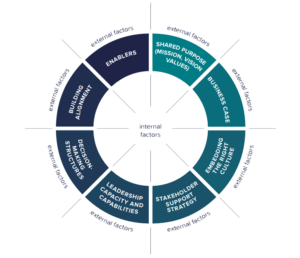
2. Selecting the right team leaders
When selecting both the leadership structure and the individuals who will take on senior roles in the team, focus not only on their technical experience but also on their ability to deal with the social complexity of delivering major projects.
There are three primary elements to every construction project:
- Technical – the knowledge and awareness of how the project components are designed and assembled.
- Commercial – the knowledge and awareness of issues around money, contracts and the identification and management of risk.
- Social – the knowledge and awareness of how we behave in groups and teams.
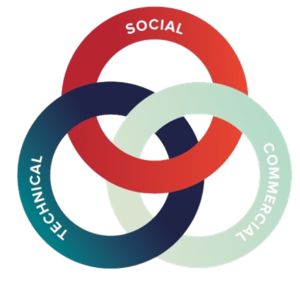
The key is that the three are intrinsically linked. High performance cannot be achieved if we are not doing enough to enhance and maintain the social competence of our teams – particularly those in leadership roles – alongside their technical and commercial development.
Our recommendation:
The step-change in performance comes when project leaders also develop and use the skills and capabilities associated with social intelligence, for instance:
- Understanding group dynamics
- Motivational drivers
- Systems thinking
- Balancing trust vs control
- Conflict resolution
- Team resilience
3. Measuring cultural development
The Construction Playbook suggests using a project scorecard and setting out various measurements in the form of KPI’s. The challenge is, how do we measure behaviours?
At ResoLex, we look at this in a couple of different ways. We measure behavioural risk and track early warning signals around 4 key areas using our proprietary tool, RADAR. This helps teams understand the short-term actions they can take to improve behaviours. We also measure cultural maturity using a matrix approach and help teams create long-term development plans to embed the desired culture.
Our recommendation:
Tool no.42 from our Collaboration Director, Tony Llewellyn’s Team Coaching Toolkit helps teams identify the behavioural indicators with a simple measurement methodology providing low and high scores.
4. Aligning to a common goal
Chapter four of the Playbook recognises the importance of creating alignment and clarity between the project team, primary decision maker and key stakeholders.
Our many years of research into team performance have helped us understand that group behaviour can be influenced if the team members bond through a range of exercises that are designed to tap into the emotional connections needed to grow trust.
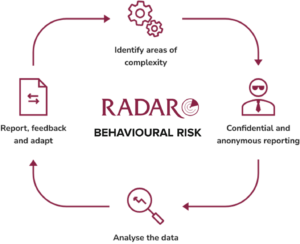
Our recommendation:
We recommend taking the time to get every team aligned to a common goal and a common project culture through a team setup process, including compulsory early workshops covering the seven core team development areas mentioned below:
- Articulate a clear vision
- Actionable values
- Build relationships
- Roles and accountabilities
- Rules of engagement
- Test assumptions
- Conflict management
5. Adjusting the mindset of conflict avoidance
Whilst conflict is fundamental to organisations, unfortunately, it is also something that we naturally want to avoid! But conflict is part of prioritising, planning, strategy, resource allocation, design and everything else in an organisation – or at least it should be. The ability of leaders to work through opposing sides of challenging emotional and political discussions and arrive at a resolution is in the best interests of the team, the client, the stakeholders and the shareholders.
In overcoming conflict, we need to adjust our mindset and think about the positive outcomes. First, acknowledge that conflict is productive and that your team may have a natural tendency to avoid it. We can base our new conflict mindset on the idea that there is more than one right, more than one version of the truth, more than one perspective. Underpin it with the belief that diversity of thought leads to better outcomes.
Our recommendation:
A ‘No Blame Culture’ is regularly set as the goal for teams coming together. Using something like this ‘No Blame Protocol’ can help give clear expectations to the team on how to approach a difficult situation.
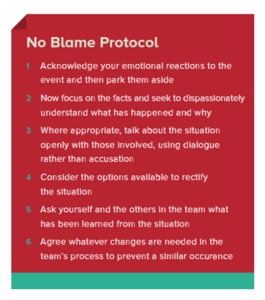
Through our five suggested best practices, we have highlighted some tools that you as leaders can use to improve your collaborative team performance.
We hope that these recommendations and tools will help you and your teams work better together to deliver projects more efficiently. If you would like further guidance, please contact us or sign up to join our Professional Learning Network, full of peer-to-peer roundtable events, resources and advice: https://resolex.com/resources/

